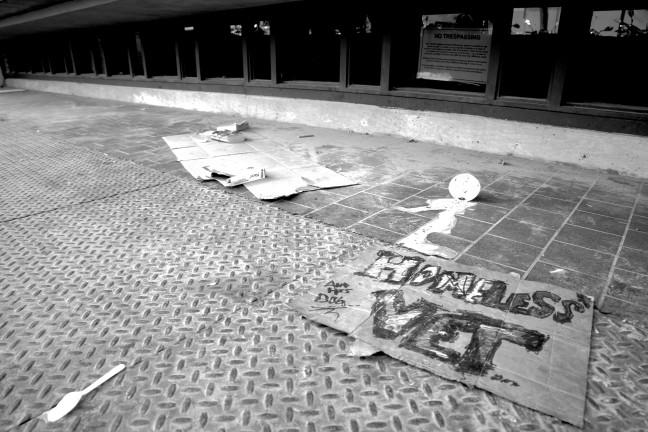Homelessness in Madison is our city’s perennially favorite topic of liberal self-loathing. Every year legislative bodies, columnists and political figures lament the plight of the homeless in Madison, and every year solutions are slow to come, if they do at all. It’s like we collectively forget that homelessness is a problem for many individuals and families year-round, but when the city approaches the depths of winter we realize that we’ve failed to adequately plan for this and will do better next year. Fortunately, this year is looking to be the year we finally follow through on our good intentions.
Last summer, Mayor Paul Soglin proposed spending upwards of $20 million to give Madison a “Housing First” strategy to combat homelessness. Housing First focuses on getting chronically homeless into more permanent housing and then working on other problems they may be facing. This approach has been adopted with great success in cities like Salt Lake City and Boston where they have seen a reduction in homelessness and lower costs. The first 200 of the 1,000 units desired by 2020 have already been approved by the City Council for next year.
However, there are detractors from Housing First models, almost exclusively focusing on the need for support networks in addition to housing. Some argue that this approach is too simplistic and, while working for some people, is not sufficient for those with more serious needs like substance abuse problems or those lacking education or skills training. Others claim that it is just placing a band-aid on the problem and without robust follow-up and support, many will end up back in the initial predicament.
Even here in Dane County there are specific concerns with Soglin’s proposal. Ald. Scott Resnick, District 8, and former alder Bridget Maniaci, who are running against Soglin in the mayoral race this spring, both supported the idea behind the proposal but questioned the timing as politically motivated by the election cycle. Substantively, Ald. David Ahrens, District 15, expressed concern over the fiscal impact of the new projects, which also includes money for new community centers, as “a package of something-for-everybody made worse by the council, which sought to do it all the next year or two.”
It is easy — and fair — to say Soglin has had years to propose this but only did so a few months before his re-election bid. Motivations and timing aside though, it is a good proposal and the quality and merits should stand on their own. Additionally, while I understand the need for fiscal restraint in a city budget, I can’t help but think funding for those with the least ought to be prioritized. In fact, my concern is that the project is not ambitious enough, with only 200 units being ready by next year. Madison has more chronic homelessness than apartments being built, so we should accelerate our plans to be better prepared for next winter.
This year can and should be different from Madison’s annual tip-toeing around the problem of homelessness. Not only do we have the first steps of an actual progressive policy in place, but the city is blessed with a competitive mayoral race featuring candidates from a wide range of backgrounds. Resnick, Maniaci and former county board supervisor Richard Brown each bring experience in debating solutions to homelessness, and I challenge the mayoral challengers to take this a step further. Each brings something unique to the table, and I have great faith that this group can and will propose ways to do even better than the mayor’s solution and push Madison even closer to ending homelessness.
Adam Johnson ([email protected]) is a Master’s candidate at the La Follette School of Public Affairs.














